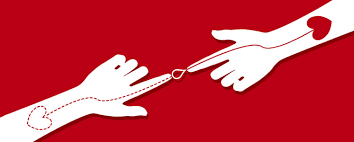
Blood donation is a gesture of solidarity to donate a small amount of the blood itself to save the lives of people who undergo treatments and medical interventions of great and complexity, such as blood transfusions, transplants, cancer procedures and surgeries.
In addition to people who undergo medical procedures and interventions, blood is also indispensable for patients with serious chronic diseases, such as Sickle Cell Disease and Thalassemia, making it essential for patients to live longer and with more quality, besides being of vital importance to treat patients in emergencies or calamities. A single donation can save up to four lives. A simple gesture of love and solidarity can generate many smiles.
Blood is irreplaceable and without it it is impossible to live. Therefore, the Ministry of Health periodically reinforces the importance of adopting a culture of solidarity of regular and spontaneous blood donation. The goal is to keep blood stocks always stocked and not just on specific dates or when any acquaintance needs it.
People between 16 and 69 years old who are weighing more than 50 kg can donate blood. In addition, it is necessary to present official document with photo. Minors under 18 years of age can only donate with the formal consent of those responsible.
The procedure for blood donation is simple, fast and totally safe. There are no risks to the donor, because no material used in blood collection is reused, which eliminates any possibility of contamination.
The requirements for donating blood is to be in good health and follow the following steps:
* To be fed. Avoid fatty foods in the 3 hours prior to blood donation.
* If it is after lunch, wait 2 hours.
* Have slept at least six hours in the last 24 hours.
* People between the age of 60 and 69 can only donate blood if they have already done so before the age of 60.
* The maximum frequency is four annual blood donations to the man and three annual blood donations to the women.
* The minimum interval between one blood donation and another is two months for men and three months for women.
People with fever, flu or cold, recent diarrhea, pregnant women and postpartum women cannot donate temporarily. Some of the other requirements considered temporary impediment for blood donation:
* Breastfeeding: up to 12 months after delivery;
* Alcohol intake in the 12 hours prior to donation;
* Tattooing and/or piercing in the last 12 months (piercing in the oral cavity or genital region prevent donation);
* Tooth extraction: 72 hours;
* Appendicitis, hernia, tonsillectomy, varicose veins: 3 months;
* Blood transfusion: 1 year;
* Vaccination: the time of impediment varies according to the type of vaccine;
* Examinations/procedures using endoscope in the last 6 months;
* Have been exposed to increased risk for sexually transmitted infections (wait 12 months after exposure).
In addition to temporary impediments, some hemocenters have definitive impediment requirements to donate blood, which are:
* Have undergone a picture of hepatitis after the age of 11;
* Clinical or laboratory evidence of the following blood-borne diseases: Hepatitis B and C, AIDS (HIV virus), htlv I and II virus-associated diseases, and Chagas disease;
* Use of injectable illicit drugs;
* Malaria.
Generally, in an adult person, on average, is given 5 liters of blood and in each donation n the maximum blood taken from the patient is 450 ml.
After blood donation, it is necessary to take some care, such as:
* Avoid excessive physical efforts for at least 12 hours.
* Increase fluid intake (water).
* Don't smoke for two hours.
* Avoid alcoholic beverages for 12 hours.
* Keep the dressing at the puncture site for at least four hours.
* Do not drive large vehicles, do not work on scaffolding and do not go for a parasite or diving.
* Have a little snack and hydrate yourself. It is important that the donor continues to feel good during the day he made the blood donation.
To donate blood, just look for blood collection units, such as Hemocenters, to check if you meet the necessary requirements for the donation.
Now that you understand the importance of this act of solidarity, do your part. Go to the nearest blood center and dot blood regularly. Lives depend on you!
Donate Blood Regularly. There's always someone who needs you.